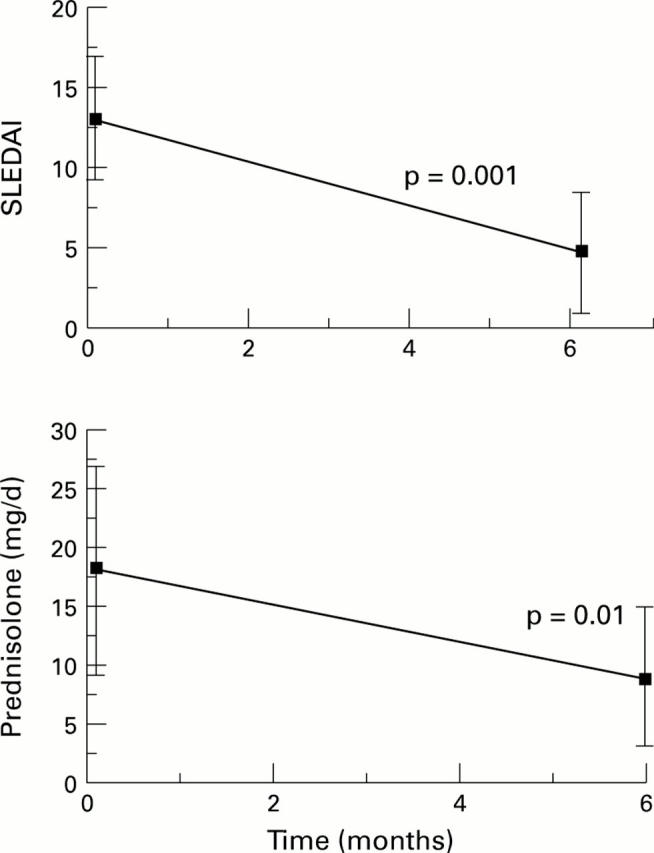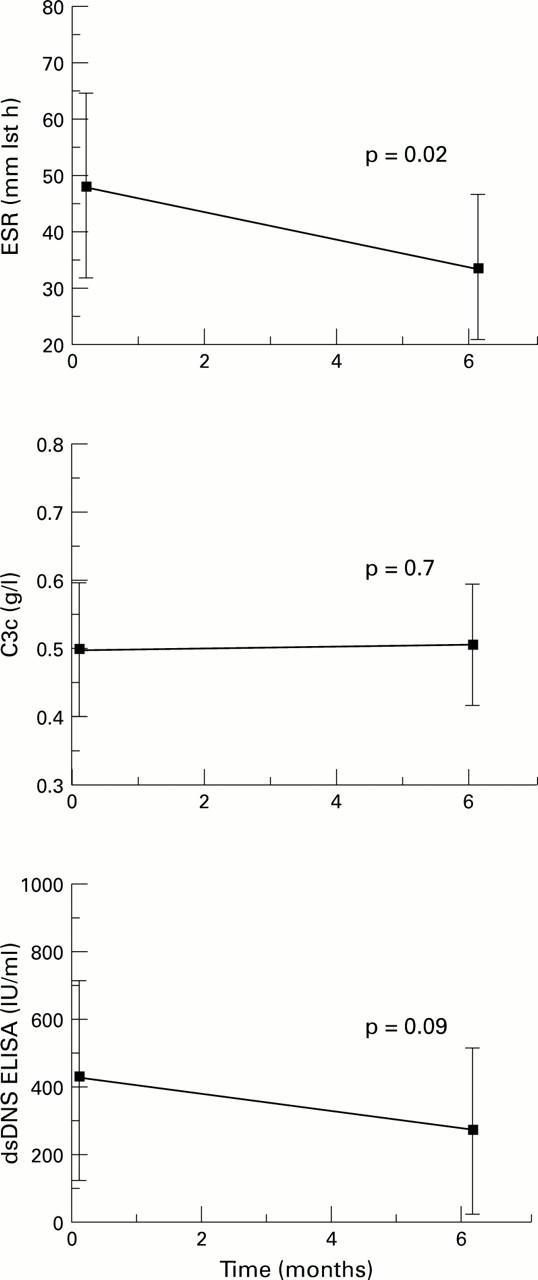Abstract
OBJECTIVES—Methotrexate (MTX) has been used in several autoimmune diseases. Apart from its use in rheumatoid arthritis, MTX has been assessed in small studies in patients with vasculitis, uveitis, and inflammatory bowel disease. The aim of this study was to evaluate the efficacy of MTX in a particular group of patients with systemic lupus erythematosus (SLE). PATIENTS—In an open prospective study 22 patients fulfilling the ACR criteria for SLE were included. Patients had one or more of the following manifestations: active non-destructive polyarthritis, dermatitis, vasculitis of the skin, pleuritis. All patients had been treated with corticosteroids for at least six months without achieving remission. Sixteen patients were taking antimalarial drugs in addition to corticosteroids, which were stopped at the beginning of the trial. Patients with renal and central nervous involvement were excluded from the study. All patients received MTX orally at a dose of 15 mg/week over six months. Corticosteroids were continued. As additional medication only indomethacin up to 100 mg/day was permitted if used before the start of the study. The outcome was evaluated using the SLE disease activity index (SLEDAI). RESULTS—Disease activity was evaluated after six months of MTX treatment. All patients completed the study period. The SLEDAI decreased significantly from mean (SD) 12.2 (3.99) to 4 (3.75) (p=0.001). The prednisolone dose was reduced from a mean (SD) of 17.4 (12.8) at the beginning to 8.8 (5.36) mg/day at the end point of the study (p=0.01). MTX was well tolerated. Four patients complained of general malaise. Two patients had transient increases in liver enzymes. In no case did MTX have to be stopped. CONCLUSIONS—In an open prospective study methotrexate was used in SLE patients with particular clinical characteristics. MTX was shown to be effective in reducing disease activity and sparing the dose of corticosteroids. Further controlled studies are necessary.
Full Text
The Full Text of this article is available as a PDF (83.7 KB).
Figure 1 .
Disease manifestations present at the time of study entry.
Figure 2 .

Reduction of disease activity and corticosteroid dose after six months of MTX treatment.
Figure 3 .

Laboratory changes after six months of MTX treatment.



